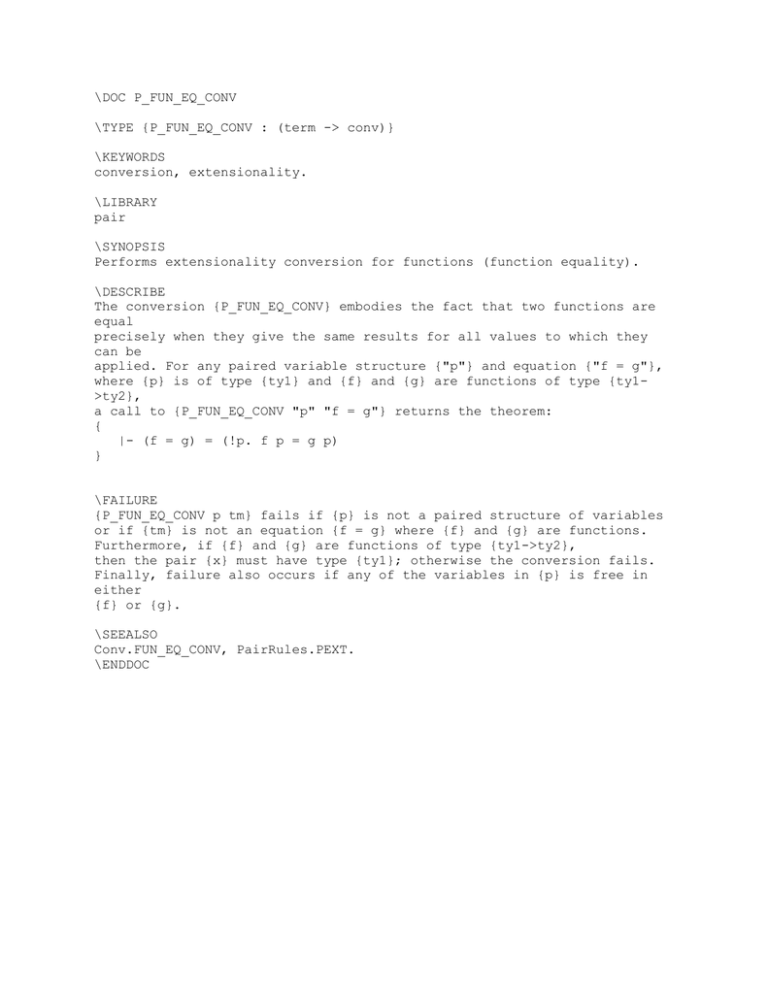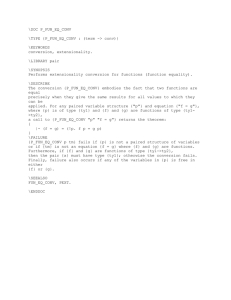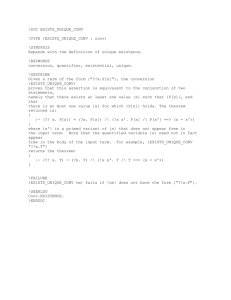\DOC P_FUN_EQ_CONV \TYPE {P_FUN_EQ_CONV : (term -> conv)} \KEYWORDS
advertisement

\DOC P_FUN_EQ_CONV
\TYPE {P_FUN_EQ_CONV : (term -> conv)}
\KEYWORDS
conversion, extensionality.
\LIBRARY
pair
\SYNOPSIS
Performs extensionality conversion for functions (function equality).
\DESCRIBE
The conversion {P_FUN_EQ_CONV} embodies the fact that two functions are
equal
precisely when they give the same results for all values to which they
can be
applied. For any paired variable structure {"p"} and equation {"f = g"},
where {p} is of type {ty1} and {f} and {g} are functions of type {ty1>ty2},
a call to {P_FUN_EQ_CONV "p" "f = g"} returns the theorem:
{
|- (f = g) = (!p. f p = g p)
}
\FAILURE
{P_FUN_EQ_CONV p tm} fails if {p} is not a paired structure of variables
or if {tm} is not an equation {f = g} where {f} and {g} are functions.
Furthermore, if {f} and {g} are functions of type {ty1->ty2},
then the pair {x} must have type {ty1}; otherwise the conversion fails.
Finally, failure also occurs if any of the variables in {p} is free in
either
{f} or {g}.
\SEEALSO
Conv.FUN_EQ_CONV, PairRules.PEXT.
\ENDDOC

